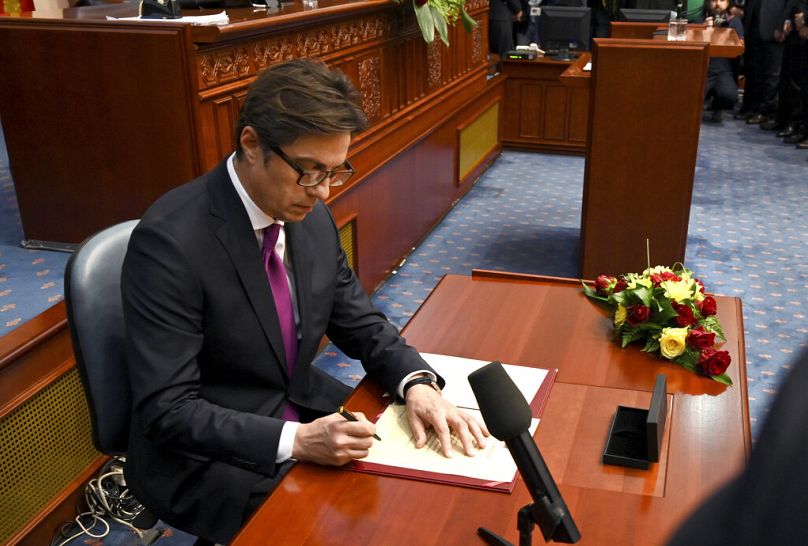The leaders promoted a new pipeline envisaged to supply gas to southeastern Europe from Azerbaijan at the Sofia energy forum in early October.
In the wake of Russia's war of aggression against Ukraine, leaders of North Macedonia and Bulgaria have agreed to cooperate in the search for alternative energy sources in an effort to limit Russia's monopoly.
 ADVERTISEMENT
ADVERTISEMENT
 ADVERTISEMENT
ADVERTISEMENT
At the Energy Forum held in Sofia at the beginning of the October, the region's leaders promoted the new pipeline that will supply South-Eastern Europe with gas from Azerbaijan.
"That summit was interesting because an attempt was made, [and] in my view a successful one, to lesser the dependence from Russian gas end to find the new provider in Azerbaijan", said North Macedonia's President Stevo Pendarovski.
The energy crises have also set a new tone in the relations between Bulgaria and North Macedonia which, until recently, had been tense due to conflicting historical issues.
At the conference held in Sofia, Bulgaria and North Macedonia put history aside to consider the present and the future. The two presidents talked about the possibility of Bulgaria directly delivering its surplus electricity -- thus helping North Macedonia overcome electricity shortage problems.
"This was essentially the first time in the past two-and-a-half years that Bulgaria started sending positive signals to us Northern Macedonians because they agreed to set up a working group of experts and find ways to stretch the rules of the European Commission so that they can export the surplus electricity that they have", Pendarovski said.
"This way the surpluses cannot go to the world market, but directly to Northern Macedonia. It's a difficult time to find ways because it needs to be in accordance with EU rules".











